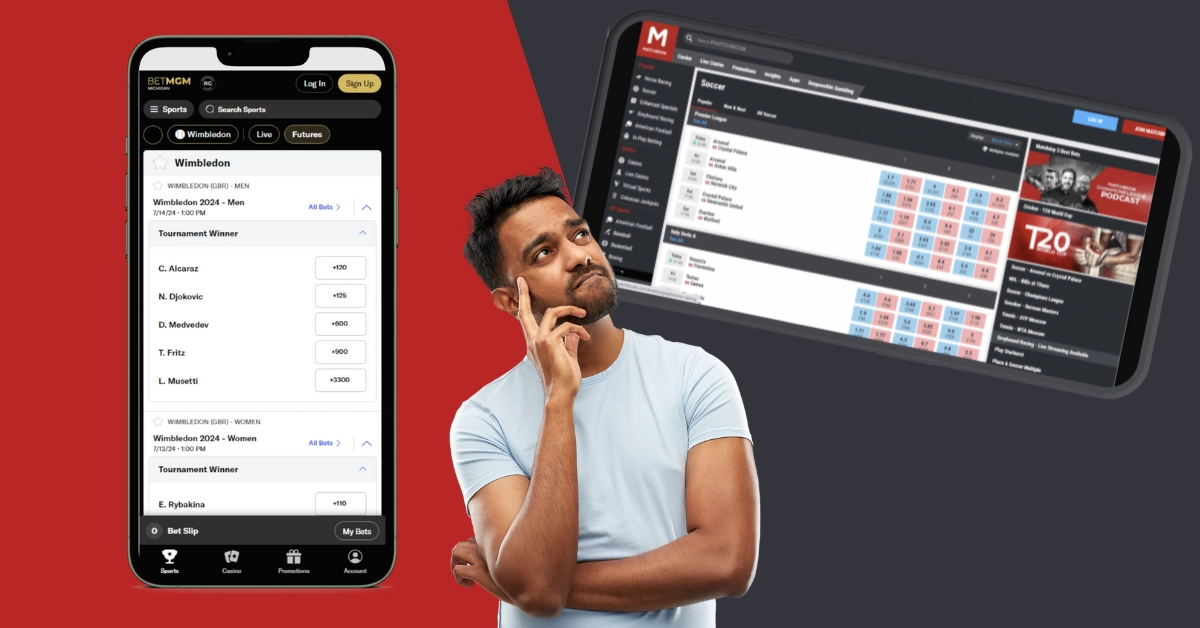How Casino Affiliates Make Money: An Inside Look

The casino affiliate scene is kind of a mystery to most. What is a casino affiliate? And how do they make money by being one—and is it a lot of money? If you’ve happened upon websites or influencers that are promoting casinos, then you’ve seen an affiliate—but how do they actually pull in cash? Although it looks like they’re just posting a link, it’s def not that simple.
Casino affiliates have turned web traffic and smart marketing into actual profits. And because more and more people are gambling online every day, and doing it via their phones and computers, affiliates play a huge part in connecting casinos with new players. So, how exactly do they make money by doing this, and how do they keep making bank? We’re going to find out and see how it all works!
What Are Casino Affiliates?
When you come across websites promoting the latest casino bonuses or YouTube channels reviewing top casino games, what you might not realize is that these are affiliates that are at work behind the scenes. They’re not just creating content for the fun of it—they get paid when you sign up or play through their links. It’s a smart, performance-based system that works for everyone who’s involved. The casinos get more players, the affiliates earn a cut, and the players snag some bonus deals.
But how do casino affiliates actually work, and why are they such a big part of the online gambling scene?
Definition and Role of Casino Affiliates
Casino affiliates are marketers who promote online casinos using different platforms like their personal blogs, social media, or on their own YouTube channels. Their job is to bring in new players to the casino, and they earn commissions when those players take specific actions—it could be signing up, making deposits, or even just playing. You can think of them as the middlemen who are connecting players with online casinos!
Affiliates are experts at tailoring their content to attract a specific audience. If an affiliate is someone who is running a blog that’s all about all things poker, they’ll stick to promoting poker games, tournaments, or bonuses that cater to poker lovers. And they use special affiliate links or codes to track which—and how many—players they’ve brought on board. This way, casinos can monitor the performance of each affiliate and pay them based on the results they deliver.
As for how they earn money, there are a few different ways. Some are on a revenue-share model, where they get a percentage of the money the casino earns from their referred players. Others could be paid per acquisition (CPA), which means they get a fixed payment for every new player that meets certain criteria, like making a first deposit. Some affiliates l work on a hybrid model that is a combo of both methods.
Why Casinos Use Affiliates
Why do casinos work with affiliates? It’s kind of a no-brainer for a win-win situation. Instead of them having to spend tons of money on conventional advertising (advertising budgets are astronomical), which may or may not even reach the right audience, affiliates only get paid for actual results. A performance-based marketing model is way more effective and costs the casinos a lot less in advertising expenses.

The main draw of affiliates is that they bring in highly targeted traffic—instead of TV ads or billboards that attempt to cast a wide net, affiliates are reaching people who are already interested in gambling. Whether that’s someone who is searching for the best casino bonuses or a player looking for a few tips on how to win at slot games, affiliates know exactly how to speak to their audience and drive conversions.
Another reason casinos love affiliates is for the content they create. From blog posts to video reviews, affiliates are building trust with their audience via informative and engaging content. This helps new players feel safer about signing up and playing—they know that they’ve been guided by someone who has expertise in the casino world. Plus, affiliates usually focus on SEO (search engine optimization), which helps drive organic traffic to the casinos without the need for crazy expensive ad campaigns.
Common Casino Affiliate Revenue Models
Curious about how casino affiliates make their money? Us too! And we found that there are a few different revenue models that make it possible for them to build pretty substantial income streams. Each one comes with its own pros and cons, depending on the affiliate’s goals and how they want to operate. If you’re looking for quick commissions or a little passive income, there’s a model for it, so let’s break down the most popular ways that affiliates cash in!
Cost Per Acquisition (CPA)
CPA is probably one of the most straightforward ways for affiliates to make money. It works like this: when an affiliate refers a new player to a casino, and that player signs up and makes their first deposit, the affiliate earns a flat, one-time commission.
For instance, if a player signs up through the affiliate’s link and deposits $50, the affiliate can get $100 or more as a CPA commission. The specific payout does vary depending on the casino and the affiliate program.
Affiliates who want immediate payouts usually gravitate towards CPA because there’s no waiting around for long-term earnings—they do their job, send the player to the casino, and they get paid once the player meets the deposit requirements. It’s a simple, no-nonsense approach that appeals to those who are able to drive a lot of traffic quickly. But there is a downside, and it’s this: Once the commission is paid, the affiliate doesn’t earn anything from that player ever again, even if the player keeps gambling at the casino for months or years. It’s a one-and-done deal.
Revenue Share
Now, for those who want to play the long game, revenue share is the better affiliate program. You don’t get paid once upfront—affiliates who use this model earn a percentage of the player’s lifetime value at the casino. This typically means the affiliate gets a cut of the player’s net losses—how much the player loses after deducting things like bonuses and fees.
Look at it like this—if a player who deposits regularly and loses $1,000 over time, and the affiliate has a 25% revenue share deal, they will pocket $250.
The great thing about this model is that it means ongoing earnings, so affiliates can earn passive income as long as the player keeps gambling. Some affiliates have built entire businesses on the back of a handful of high-value players who gamble consistently over the long term.
Again, this model isn’t without risk, either. If the player wins big or quits playing altogether, the affiliate’s income will take a hit. Plus, some programs have clauses like negative carryover, where the affiliate starts the next month with a negative balance if their referred players had a profitable month.
Hybrid Models
And for the affiliates who want a mix of quick earnings and long-term gains, there are hybrid models that give you the best of both worlds. With a hybrid setup, affiliates will earn an upfront CPA commission when they refer a new player, but they also get a smaller cut of that player’s future activity through revenue share.
Let’s say a casino affiliate refers a player and earns a $50 CPA payment upfront. In addition to that, they will also get 10-20% of that player’s net losses for as long as they keep playing at the particular casino.
This is a popular option for affiliates who want the security of immediate payment but don’t want to miss out on the chance for long-term earnings if their referred players stick around and keep gambling.
Hybrid models are perfect for affiliates who can bring in both high-volume traffic and retain those players over time. Sure, the upfront CPA payments might be smaller compared to straight CPA deals, but the ongoing revenue share balances the short-term gains with long-term potential!
Flat Rate Payments for Content
Not all casino affiliates want to be involved in managing players for the long-term—some want a simple, one-time payment in exchange for their promotional efforts, and this is a flat rate payment model. Smaller affiliates, or those just starting out, will agree to publish a casino review or feature a banner on their site for a flat fee.
The affiliate gets paid upfront, and once that transaction is complete, they don’t earn anything based on player activity or deposits.
This model is usually used by smaller websites or influencers who don’t yet have the traffic volume to justify a more complex CPA or revenue share agreement. A blog may charge a casino a few hundred dollars to post a review, and that’s the end of the transaction. There’s no risk involved, but the earning potential is also capped since the affiliate won’t benefit if the players they referred turn into high-value customers.
How Affiliates Attract Players
Casino affiliates have plenty of tricks up their sleeves to bring new players into the fold. From ranking well on search engines to running slick paid ads, their marketing techniques are varied and sometimes pretty sophisticated. Let’s break down how affiliates use these strategies to draw in curious players and turn them into regulars.

SEO and Organic Traffic
Search Engine Optimization (SEO) is one of affiliates’ most important strategies to bring in steady, organic traffic. The goal here is to rank highly on Google when people search for terms like “best online casino” or “casino bonuses.” The higher an affiliate ranks, the more likely someone will click through to their site and, eventually, to a casino.
Affiliates who succeed with SEO don’t just sprinkle keywords around. They create valuable, engaging content that answers players’ questions. Think about reviews of casinos, guides to specific games, or articles on how to score the best bonuses. The more helpful and informative this content is, the longer people will stick around, which helps the site rank higher in Google’s eyes.
Backlinks are another huge part of the SEO game. When other reputable sites link back to an affiliate’s website, Google sees that as a vote of confidence. This means affiliates will need to collaborate with other sites or work on guest posting to build those links. Over time, these backlinks can help boost their rankings and visibility.
SEO is so powerful that once an affiliate has built up a strong presence, the traffic keeps coming in without any extra costs. It takes time to build, but the rewards are long-lasting. Plus, organic traffic often converts better because it feels more authentic than a paid ad. Players trust information they’ve found through a Google search.

PPC and Paid Advertising
While SEO is great for long-term growth, Pay-Per-Click (PPC) advertising gives affiliates a quicker way to attract new players. Affiliates will run ads on platforms like Google, Facebook, or Instagram, targeting users based on their interests or the keywords they search. Unlike organic traffic, PPC gets results right away—at a cost.
Affiliates need to choose their keywords carefully when running PPC campaigns. The gambling space is highly competitive, and popular keywords can get expensive. For example, targeting a general keyword like “online casino” might have a high cost per click (CPC), but affiliates can work around this by focusing on more specific, long-tail keywords like “best casinos for slots” or “high roller casinos.”
It’s not just about the keywords, though. Affiliates also need to make sure their ads grab attention. They’ll highlight special bonuses, unique game features, or other perks to entice users to click. A/B testing different versions of the ad copy can help refine these ads over time, ensuring the best results.
Even with the high competition and cost, PPC remains popular because it can drive immediate, high-quality traffic. However, affiliates have to monitor their ad spending closely to make sure they’re not burning through their budget without enough return on investment.

Social Media and Influencer Marketing
Social media platforms like Instagram, Facebook, X, and YouTube have become the main channels for affiliates to reach potential players. Affiliates use these platforms to share everything from casino reviews to bonus codes to game strategies. The casual, interactive nature of social media makes it a great way to build a relationship with potential players before sending them to a casino.
But it’s not just about regular posts. Some affiliates collaborate with influencers in the gaming and gambling world, leveraging their large, dedicated audiences to promote casinos. Influencers might create content like reviews, live game sessions, or even behind-the-scenes looks at specific casinos. This kind of content feels personal and authentic, which can result in much higher conversion rates than traditional ads.
In these collaborations, influencers share their honest experiences with a casino, which resonates more with their followers compared to paid ads. Plus, social media is great for encouraging engagement—affiliates can respond to comments, answer questions, and build a community around their content.

Email Marketing and Newsletters
Email marketing is a tried-and-true method affiliates use to engage players. Building an email list allows them to send tailored content directly to interested players, keeping them in the loop with the latest promotions, bonuses, or casino reviews. Affiliates can segment their email lists to make sure the right message goes to the right player. For instance, one player might be more interested in slot bonuses, while another might be all about poker tournaments.
What makes email marketing so effective is that it nurtures players over time. It’s not just about sending one email and hoping for the best. Affiliates set up automated campaigns that keep players engaged—maybe a follow-up email about an exclusive bonus or a reminder about a casino they checked out but didn’t sign up for. Over time, this kind of consistent communication builds trust, making it more likely that a player will eventually take action.
Emails also offer affiliates a chance to provide value without asking for anything in return. They build credibility and keep players interested by sharing useful info, like game tips or casino strategies.

Review Websites and Comparison Pages
Many casino affiliates build entire websites dedicated to reviewing and comparing different online casinos (similar to this page). These sites are designed to be informative and helpful, providing players with everything they need to know before choosing a casino. Affiliates typically review aspects like game variety, bonus offerings, customer service, and payout speed.
What makes these sites so successful is the trust factor. Players are more likely to sign up for a casino if they feel like they’ve done their homework first. Detailed, unbiased reviews make the decision easier, and comparison pages that highlight the differences between casinos can simplify the choice even further. The transparency these affiliates provide helps players feel more confident in their choices, which drives conversions.
Some review sites also provide exclusive bonuses or promo codes, giving players an extra incentive to sign up through their links. This adds a layer of value to the player experience, as they get something extra by using the affiliate’s recommendations.
Affiliates are resourceful and creative in how they attract new players. By combining SEO, paid advertising, social media, email marketing, and detailed reviews, they build comprehensive marketing strategies that work across different channels. Each method complements the others, creating a robust system for driving traffic and converting casual visitors into loyal players.
Challenges Faced by Casino Affiliates
Casino affiliates, like so many others in the digital marketing world, are up against some unique hurdles that means any kind of success is much more complicated than it looks. There are changing regulations, an oversaturated market, and changing commission structures, ao affiliates have to be adaptable and creative to negotiate this digital space. What are the main obstacles they encounter? Look below!
One of the trickiest aspects of working as a casino affiliate is keeping up with all the legal requirements. Online gambling is regulated differently depending on the country, and these regulations aren’t just surface-level—they affect nearly every aspect of an affiliate’s work. Some regions are much more lenient, while others impose strict rules on how affiliates can promote casinos and what types of games or offers they can advertise.
In Europe, for instance, the regulations are often more stringent, especially with the European Union’s oversight. Countries like the UK have robust systems in place with their Gambling Commission, making sure affiliates promote responsible gambling and follow anti-money laundering laws. Meanwhile, affiliates might encounter less stringent but equally challenging rules in other parts of the world, such as some regions in Asia or Latin America.
On top of that, casino affiliates need to be mindful of regional restrictions around data protection. With GDPR in Europe, affiliates have to be especially careful about how they handle player data. This means affiliates need to have solid systems in place to manage customer information securely, which can be both time-consuming and expensive.
On top of that, casino affiliates need to be mindful of regional restrictions around data protection. With GDPR in Europe, affiliates have to be especially careful about how they handle player data. This means affiliates need to have solid systems in place to manage customer information securely, which can be both time-consuming and expensive.
Staying compliant in these regions isn’t just about avoiding fines—it’s also about being able to continue operating without getting caught up in red tape. Affiliates often have to juggle different licenses for different regions, adding to the complexity. Those that manage to get ahead of these regulatory challenges are usually the ones that stay in the game long term.
The casino affiliate space is crowded. With thousands of affiliates all vying for attention, it’s no surprise that standing out is a massive challenge. Established affiliates, many of whom have been in the game for years, already have strong SEO rankings, vast email lists, and loyal audiences. Newcomers can find it incredibly difficult to break through all the noise and establish themselves.
One of the primary ways affiliates try to carve out their space is through SEO. Ranking on Google for popular casino-related keywords like “best online casino bonuses” or “top slots sites” can drive a ton of organic traffic, but getting there is no easy task. It requires a deep understanding of SEO tactics, strong content creation, and a lot of patience. Affiliates need to continually optimize their sites, from keyword strategy to backlink-building, to climb the ranks on Google.
Another avenue affiliates pursue is paid advertising. But here, too, the competition is fierce, and the stakes are high. In the gambling industry, keywords are some of the most expensive in the digital ad world. Affiliates who want to use Google Ads or Facebook to promote casinos need to have deep pockets and smart targeting strategies to ensure they’re getting a solid return on their investment.
New affiliates often have to find creative ways to compete, like building niche audiences or leveraging emerging platforms like TikTok or Twitch, where there might be less competition. But no matter the platform, making a mark in such a saturated market is an affiliate’s toughest task.
Casino affiliates don’t only face external pressures—there are internal challenges as well, especially with the fluctuating commissions. The way affiliates get paid can vary, and sometimes it changes abruptly. Affiliates usually work on either a revenue-share model or a CPA (Cost-per-acquisition) model, and both have their ups and downs.
With the revenue-share model, affiliates earn a percentage of the player’s spending at a casino for as long as they keep playing. This can be lucrative for affiliates with loyal, high-spending players, but it also comes with risk. If those players stop gambling, the affiliate’s income dries up. Even worse, some casinos implement “negative carryover” rules, meaning if a player wins big, the affiliate could start the next month with a negative balance, cutting into future earnings.
CPA models are a bit more straightforward. Affiliates get paid a flat fee for every player they refer who makes a deposit. But even here, the terms can change. Some casinos lower their CPA rates without warning, while others impose stricter requirements for player deposits before an affiliate gets paid. Additionally, affiliates who work on CPA-only deals might miss out on long-term earnings if a player they refer turns into a high-roller down the line.
The fluctuating nature of commissions makes it essential for affiliates to diversify their income streams. Relying on one or two casino programs can be risky, especially if those casinos decide to cut commission rates or introduce new terms that decrease the affiliate’s earnings.
How to Become a Successful Casino Affiliate
Becoming a successful casino affiliate does not happen overnight—you don’t just sign up for a program, sit back on your laurels, and wait for the money to roll in. It takes work, and that means having a solid strategy, good relationships with the right casino partners, and a willingness to improve your approach constantly!
As for choosing casinos and affiliate programs, they are not all created equal, so finding the right partners will make or break your success. One of the first things to look for is the casino’s reputation. Are they licensed and regulated by reputable bodies? Do they have a good track record for treating their players fairly? These are all super important questions to ask before you invest your time in promoting them!
Equally as important is the structure of their affiliate program. You have to understand the commission models they offer—as we said earlier, it could be a CPA (a one-time payment for each referred player) or a revenue-share model where you get a percentage of a player’s lifetime value, or a hybrid model, which is a combo of both upfront and ongoing payments. Picking programs with favorable terms is the main thing, especially since commission structures can greatly differ between casinos!
Once you’ve found a few solid programs, you don’t want to spread yourself too thin by just promoting every casino. Concentrate on a handful that have the best terms and have a solid reputation with players. Why? Because building better relationships with a few partners will most likely turn into better earnings and possible opportunities for negotiation on commissions.
Content is king online, and the casino affiliate space is no different. Creating informative, engaging, and trustworthy content is the best way to build an audience and encourage them to take action. But it’s not enough to just put out the basic info—you should give your audience real value. Players want to read about more than bonus offers; they’re also looking for expert advice, insider tips, and reliable reviews.
Detailed casino reviews are a great starting point. You should cover everything from the games and bonuses to the payment methods and customer service experience. Highlight the pros and cons honestly—readers aren’t dumb and they will appreciate the transparency. If they feel like they can trust your content, they are more likely to sign up using your referral links.
And don’t just limit yourself to just written content, either! Video reviews, gameplay demonstrations, and infographics always make content more engaging and shareable. A video of you testing out a new casino game or explaining how to maximize a bonus will speak to potential players in a way that a blog post alone will not.
Consistency is another must, so you should always be updating your content—keep your reviews current and make sure your site is giving the most up-to-date info. A well-maintained website or blog signals to users (and Google) that you’re an active and trustworthy source!
Without an audience, even the most amazing content will go unnoticed. Building and growing a loyal audience takes time, but it’s really important for long-term success. One of the best ways to start is by optimizing your site for search engines (SEO). Ranking highly for casino-related keywords can bring in a steady stream of organic traffic, and regularly publishing SEO-friendly content will boost your visibility and increase the chances of players landing on your site when they search for casinos.
In addition to SEO, social media is a really powerful tool for growing your audience. Platforms like X (formerly Twitter), YouTube, Instagram, Facebook, and TikTok will help you reach almost every demographic. Take advantage of the platforms to share content, promote special offers, and engage directly with your audience. You can also collaborate with influencers who already have a following in the casino or gaming space if you really want to grow your audience.
Building an email list is another solid way to nurture your existing audience. Email newsletters mean you are able to stay connected with potential players by sending them updates on new casinos, bonuses, or customized content that is based on their interests. The main thing is to keep your emails informative and engaging without being overly promotional. This helps maintain trust and keeps your audience coming back to your site (but don’t spam them, either).
Once your site is off the ground and generating traffic, it’s time to refine your approach via tracking and optimization. Just having a site isn’t nearly enough—you have to know how well it’s performing. This is where tools like Google Analytics come to the rescue! You can track your visitors, see where your traffic is coming from, and understand which pages or content pieces are driving the most conversions.
Most affiliate programs also give you a dashboard for tracking clicks, sign-ups, and earnings, so you can use the data to identify your top-performing content and optimize it further. If a particular review is generating more traffic or sign-ups than others, look into what’s making it successful and apply those strategies elsewhere.
A/B testing is another solid way to boost conversions, so try out different headlines, images, or calls to action to see which ones do the best with your audience. Regular testing means you can make the best decisions based on what’s actually working and not just rely on guessing.
The online casino industry is super fast-paced—there are always new trends, games, and regulations popping up. Staying current is absolutely critical to keeping your content relevant and your strategies effective. Subscribe to industry newsletters, join affiliate forums, and follow the main industry figures on social media to stay in the loop about any and all new developments.
As we said earlier, regulatory changes are really important to watch—the legality of online gambling varies by country, and rules can change overnight. Being aware of these changes means you will avoid promoting casinos in regions where gambling could suddenly become restricted, and it also verifies that your site will be compliant with any regional advertising rules.
Attending industry events, like affiliate conferences, can also give you great insights and networking opportunities. These types of events will highlight emerging trends, new technologies, and upcoming opportunities that can give you a competitive edge over the crowded competition.
The Future of Casino Affiliate Marketing
Casino affiliate marketing is on the verge of big shifts as new technologies and changing player habits reshape the landscape. With mobile gaming leading the charge, emerging markets creating fresh opportunities, and new tech like AI driving innovation, affiliates who keep up with these trends will thrive. Let’s take a look at the biggest developments that are restructuring the future of this industry!
Mobile gaming has exploded in popularity, and it’s transforming the way affiliates approach marketing. These days, more than half of online traffic comes from mobile devices, which means that affiliates need to adapt their strategies to reach users who prefer to gamble on their phones. Whether it’s making sure websites are optimized for mobile or promoting casino apps, the shift toward mobile is impossible to ignore.
For affiliates, mobile optimization isn’t just about making content look good on a smaller screen. It’s about creating fast-loading, user-friendly sites that keep players engaged. Since mobile players are often on the go, a smooth, seamless experience is key. Affiliates can also take advantage of location-based marketing, offering region-specific promotions or bonuses that appeal to players based on where they’re gambling from.
Casino apps are another huge opportunity. With these apps, players get a more tailored, convenient experience, and affiliates can tap into this by promoting exclusive bonuses or features that are only available through app downloads. The more affiliates can focus on mobile-first strategies, the better positioned they’ll be to capture this growing audience .
As online gambling is spreading like wildfire across the world, new markets are offering fresh opportunities for affiliates. In places like the United States, where more states are legalizing online gambling, the market is growing fast. Affiliates who can establish themselves in these regions early on will have an edge over the competition.
Canada is another region to watch as provinces begin to relax their online gaming restrictions. Meanwhile, other markets in Latin America, Asia, and parts of Europe are also emerging as internet penetration increases and regulations evolve. Affiliates targeting these regions need to be savvy about local preferences and regulations. What works in one market might not in another, so customizing content and marketing strategies to fit specific regions will be crucial to success.
Understanding the regulatory environment is a big part of this. Each country has its own laws around gambling, and these can change quickly. Affiliates will need to stay on top of these shifts and be ready to adapt their strategies as new rules come into play.
New technologies are revolutionizing how affiliates operate, making it easier to create personalized marketing campaigns, track player behavior, and optimize performance. AI and machine learning are at the front of the pack, with predictive analytics giving affiliates the tools to anticipate what kinds of offers or content will connect best with different audiences. This means there can be precise targeting and a much better use of available resources.
Another major innovation is the integration of blockchain technology in the affiliate space. Blockchain provides transparency in transactions, ensuring that commissions are paid fairly and securely. Smart contracts, which automatically execute when certain conditions are met, are making it easier for affiliates to manage agreements with casinos without needing constant oversight.
Livestreaming platforms like Twitch, YouTube Live, and Facebook Live are also becoming super important tools for casino affiliates. Through these platforms, affiliates can create interactive content—whether it’s live gameplay, Q&A sessions, or exclusive bonus reveals—that engages players in real-time. This format creates a sense of community and trust, which can be invaluable for attracting new players.
Twitch, in particular, has become a hotspot for casino streaming, where influencers and content creators share their gaming experiences live with followers. This direct interaction allows players to see casinos in action and can lead to higher conversion rates, especially when influencers endorse particular brands .
The future of casino affiliate marketing is filled with opportunity, but it will require affiliates to stay agile and embrace the changes that mobile technology, emerging markets, and new innovations bring. Those who can adapt their strategies to meet players’ evolving needs will find themselves well-positioned to succeed in this exciting, fast-growing space.
Conclusion
Casino affiliates are kinda like matchmakers in the gambling world—they send players to the right casinos for them, and they make money while doing it! If they’re earning a cut of a player’s lifetime spend or getting a payout for sign-ups, there are lots of ways to cash in. But it’s not all fun and games—affiliates do have some challenges, like having to keep up with the always-changing rules and commission rates.
Even so, casino affiliate marketing is chock full of exciting opportunities. Since mobile gaming took off and with new markets opening up, there’s a ton of space for growth. If you’re thinking about becoming a casino affiliate or wondering how it works, there’s so much to explore, and you never know—it could be something that’s fun and financially rewarding!

Alyssa contributes sportsbook/online casino reviews, but she also stays on top of any industry news, precisely that of the sports betting market. She’s been an avid sports bettor for many years and has experienced success in growing her bankroll by striking when the iron was hot. In particular, she loves betting on football and basketball at the professional and college levels.








